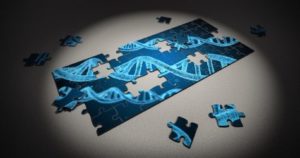NEW HAVEN, Conn. — In our quest for self-knowledge, is knowing our own genetic makeup always a benefit? It turns out the more you know may actually have some potentially harmful consequences.
New research finds that learning you’re predisposed to certain conditions may actually cause you to believe you’ve battled symptoms in the past. Conversely, those who learn they’re not at greater risk may feel far more comfortable about their health, leading them to adopt unhealthier behaviors.
According to two Yale University studies, discovering the mysteries of our own genes can produce negative psychological outcomes. Researchers conducted two studies, one regarding a genetic predisposition toward depression and a second about the likelihood of developing obesity.

For each study, researchers collected fake saliva tests and told participants their genetic risks would be revealed. At the end of the testing, participants were told that none of the so-called results were valid and no true genetic information had been revealed.
In the first study, researchers told participants that they would find out their genetic risk of developing depression. Those who were given the news that they had a greater risk of developing depression remembered more depressive symptoms from the past that those who were told that they were at low risk for developing depression. This self-fulfilling prophecy occurred despite the fact that “test results” were fake and participants were simply selected at random for the good news/bad news outcomes.
“These results suggest that merely being told they have a genetic propensity toward depression might actually distort people’s memories about how much depression they’ve experienced in the past,” says Matthew Lebowitz, lead author of the study, in a Yale release.
“This is particularly alarming when we consider that patients’ memories about their own subjective experiences are the primary information used to make a psychiatric diagnosis,” adds study coauthor Woo-kyoung Ahn.
Researchers did a second study involving a genetic predisposition toward obesity. They found that the participants who were told that they were not genetically inclined to obesity had a changed attitude toward exercise and healthy eating. Why bother, they reasoned, if they had no need to worry about weight gain?
The authors found that those who were told that they did not have the obesity gene were much more likely to select fries than a salad when ordering off a lunch menu.
“It seems that when people were told they did not have a particular genetic susceptibility to obesity, they assumed that they wouldn’t have to worry about what they ate or how much exercise they got,” says Ahn.
People make false assumptions and create in their minds a “genetic invincibility effect,” the authors say. They come to believe that their genes give them a free pass to do as they please and pitch common sense aside.
The results of the two studies warn that a little genetic knowledge may be a dangerous thing and that medical professionals should think twice when providing personalized genetic results.
“Providing people with information about their own genes is likely to become an increasingly common practice in many areas of healthcare, and this will probably have a lot of benefits,” concludes Lebowitz. “But while the advantages of increased access to genetic information seem to be widely recognized, our findings suggest that there might also be some downsides that the field needs to grapple with.”
Results of the first study on depression were published in the Journal of Consulting and Clinical Psychology. Results of the second study on obesity were published in the journal Appetite.

So only the government should have this information because we’re all too stupid to handle the information usefully?
The government would strongly argue : “YES”.
And then fund a study to show they were right!